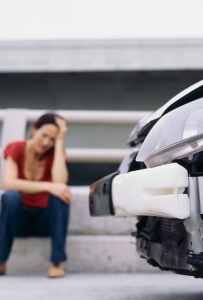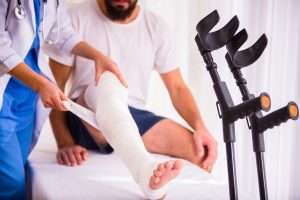RECENT POSTS
Categories
Surviving the Crash: Avoid These Mistakes After a Car Accident
 Owning a car is a necessity for many of us. Whether we're commuting to work, school, or running errands, we spend a significant portion of our day driving. However, despite the frequency of car use, most people will never experience a severe accident in their lifetime.
Owning a car is a necessity for many of us. Whether we're commuting to work, school, or running errands, we spend a significant portion of our day driving. However, despite the frequency of car use, most people will never experience a severe accident in their lifetime.
If you find yourself in the unfortunate situation of being involved in a serious car crash, it's crucial to be aware of potential pitfalls. Avoiding these common mistakes after an accident can help protect your interests and your personal injury claim.
#1: Wrongful Admissions Can Be Used Against You
After a car accident, your first instinct will be to make sure that you and your passengers are okay—that’s normal. However, most people instinctively say “I’m sorry” after checking on the person in the other vehicle––which can be interpreted as an admission of fault.
After a car wreck, you should be concerned about the wellbeing of the other person involved in the accident, but watch your words. Don’t apologize for something that isn’t your fault or speculate instances where the accident could have been avoided. Your words can be used against you in a personal injury case.
#2: Don’t Minimize Your Injuries
Following a car accident, your body will be full of adrenaline, so you might not notice pain at first—that’s normal. Adrenaline is responsible for masking any pain you might feel during a traumatic event; this deception can lead you to believe that you feel fine after a car accident.
Adrenaline triggers your fight-or-flight response, and in the event of a car accident, this is important—but it also means you might not immediately know how you feel in the aftermath of a wreck, and you might be tempted to put off seeking medical care.
It’s essential to your claim that you document all injuries so that your doctors can take the right steps with your treatment. Waiting too long after an accident to seek medical care can put your health at risk, and prolong your healing. And, if you bring up pain later down the road, it will be harder to prove your case.
#3: Be Mindful of What You Sign
After an accident or injury, you may be stressed and disoriented. That’s understandable. However, you need to have a clear mind so that insurance companies can’t catch you off guard.
For example, many insurance companies will send out medical releases and authorizations––don’t sign them. These documents are often very broad, and insurance companies are looking for a loophole to deny or reduce your claim. Unfortunately, many people will sign these documents blindly and without question.
#4: Don’t Agree to a Recorded Statement
Insurance adjusters are experienced at denying or defending claims, so they know what questions to ask and how to ask them. Recorded statements can be leveraged against you.
Assume that every telephone conversation with an insurance adjuster is recorded. Be mindful of your words, and seek legal advice before agreeing to any terms.
 #5: Don’t Ignore Your Doctor’s Advice
#5: Don’t Ignore Your Doctor’s Advice
Your claim is serious and needs to be treated as such. If your doctor gave you a specific treatment plan, don’t ignore it! Your negligence of medical care can risk your health and your personal injury case.
For instance, when you try to settle your case, the insurance adjuster will go through your treatment records. If you failed to meet with your doctor as advised, the adjuster will take note of this, and act accordingly.
If the claim makes it to court, the judge and jury will also look through your medical treatment records—and your case will likely be devalued.
It’s important to your overall health, and the integrity of your case, that you follow up with your doctor and seek the recommended treatment after a car accident.
#6: Don’t Allow Important Evidence to Vanish
Evidence following a car accident should be collected immediately. This includes photographs of car damage, the accident scene, and skid marks, as well as defective vehicle parts, vehicle damage, surveillance video, etc.
Healing after an accident is important, but don’t undermine the importance of collecting evidence. Hire a skilled attorney to work with you to preserve important evidence.
#7: Don’t Vocalize an Accident on Social Media
Social media is highly accessible these days, and if you have an insurance claim out there, chances are, insurance companies are lurking on your account, trying to gather information. Any posts that contradict your accident claim can be held against you later on in court. Avoid posting anything relating to the accident or your injury to protect yourself and your case.
Do You Have a Personal Injury Claim?
If you were injured in a car accident, you probably have a personal injury claim to compensate for your losses. Don’t settle for insurance companies to handle your case for you. You need an experienced lawyer who values your claim to get you the compensation you deserve. Call Wettermark Keith today.
It's natural to check on the other driver's well-being after an accident, but be careful with your words. Avoid admitting fault or speculating about the cause of the accident. Focus on exchanging contact and insurance information and avoid making any unnecessary comments. Remember that your statements can be used against you in a personal injury case.
Ready to work together? Contact us today for a free consultation.
HERE'S WHAT TO DO NEXT
If you or a loved one have been injured and think you might have a case, call us now for a free consultation.


